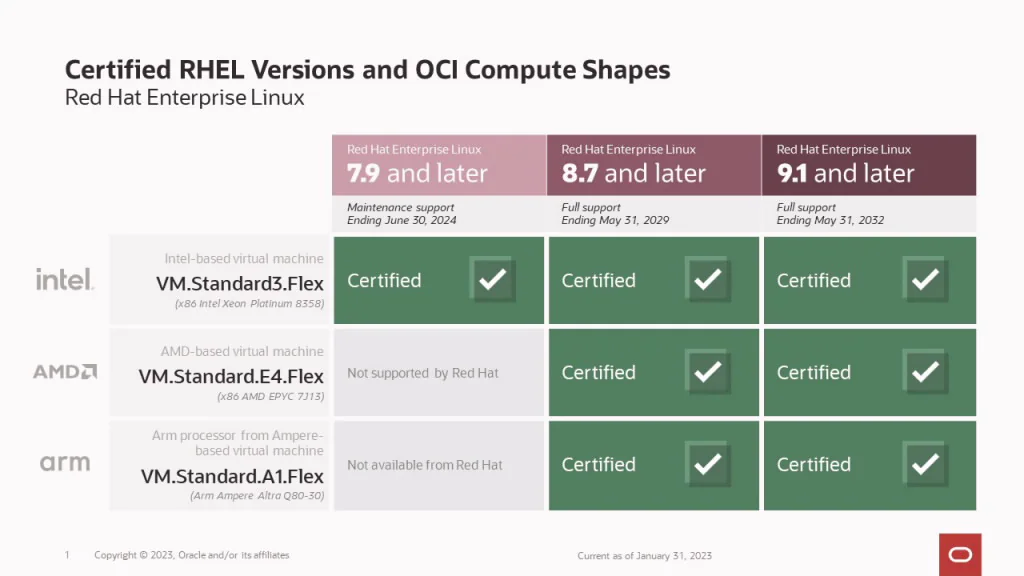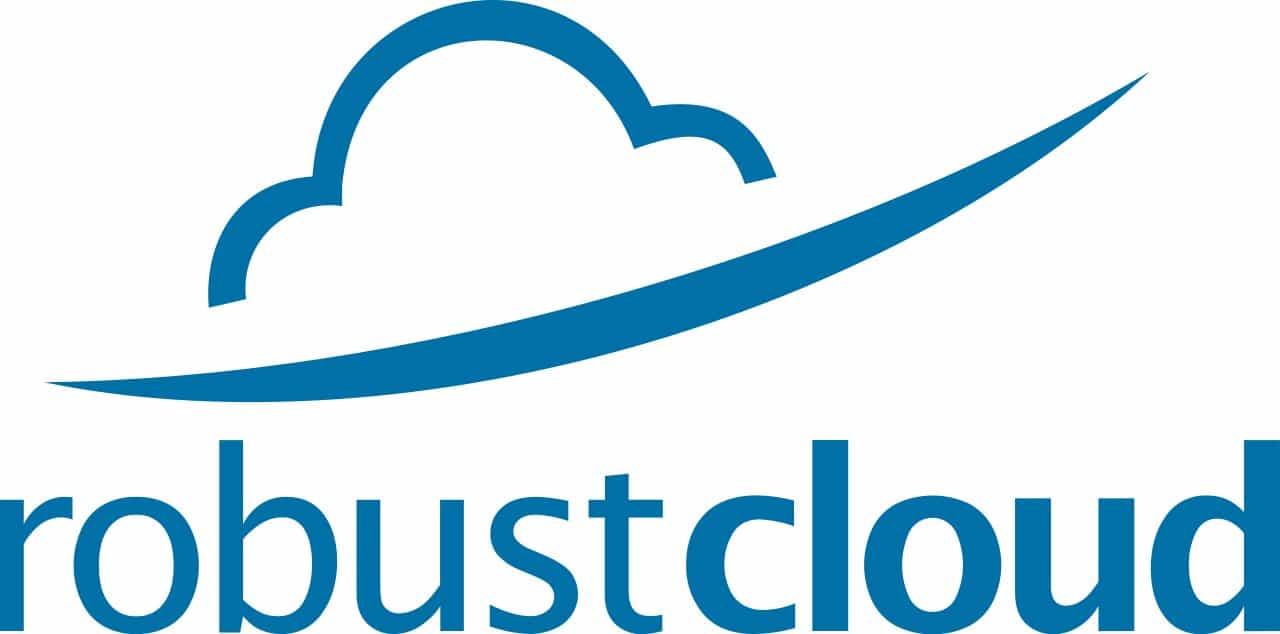On January 31st, 2023, Oracle and Red Hat announced an expansion of their collaboration. This blog post covers the announcement, the value both companies bring to the partnership, and a summary of its effect on various stakeholders.

The Oracle-Red Hat Partnership: Technology vendors have strengths in different areas of customer needs, and partnerships enable them to meet the continuously changing demands of emerging solutions. The Oracle-Red Hat partnership combines Red Hat’s open source strengths with the value of Oracle’s distributed cloud offerings, allowing customers to use the hybrid cloud as their platform for digital transformation. This partnership expands customer options to run workloads on various locations, from the public cloud to data centers to edge locations.
Highlights of the partnership:
1. Joint testing and certification of RHEL running on OCI lower customer risk. The full support of RHEL versions 8.7 and 9.1 ends in 2029 and 2032, respectively (see figure 1). Assured that these vendors will provide ongoing maintenance and updates, the extended support timeline reduces the risk for customers investing in these solutions.
2. A large installed base of joint customers can adopt the combined offering for database, middleware, and enterprise applications. The partnership encourages IT departments to use both Red Hat and Oracle products and expands the usage of RHEL on OCI.
3. Customers can use license portability with a jointly supported platform. License portability is most useful for Red Hat customers with RHEL licenses, and has deployed them on non-OCI platforms due to a lack of support. In those cases, the licenses can be transferred to OCI with the same contracts from Red Hat.
4. While the partnership is initially focused on RHEL, there is an opportunity to expand the collaboration and support more products. It was recently reported that Red Hat’s OpenShift has $1 billion in annual recurring revenue, demonstrating the popularity of the hybrid platform. There will likely be a demand for OpenShift to be supported on OCI and the subsequent expansion of the partnership.
Red Hat value in the partnership:
1. Support on multiple public cloud providers. Red Hat customers get the choice of running on the public cloud environment that delivers the best value. Adding OCI to the mix further enhances Red Hat customers’ ability to take advantage of Oracle’s distributed cloud strategy.
2. Common platform across public, on-premises, and edge deployments. The most important benefits of a common platform are the security and ease of management across any environment chosen by a customer. Using one platform reduces the risk and lowers the cost of staff training by consistency across different deployment environments.
3. Easy access through cloud marketplaces. Delivering Red Hat services through marketplaces on multiple public cloud providers allows customers to innovate faster due to better integration with other services leading to faster time to market. This simplifies the ability of customers to try Red Hat products. To be noted is that Red Hat is not yet available through the Oracle Cloud Marketplace.
Oracle’s OCI value in the partnership:
1. Distributed Systems: OCI offers customers the ability to securely run in multiple locations that help control data residency and locality to satisfy regulatory requirements. The flexibility to run workloads closer to users assists in better performance giving a better user experience at consistent costs.
2. Flexible VMs: Customizing VMs to suit the needs of an application deliver customers the ability to pick the number of cores and memory to optimize both cost and performance. This would be especially useful for customers that face varying demands as the compute can be granularly dialed up and down to cater to unpredictable needs.
3. Simplified pricing: Unpredictable bills have been a perennial problem for users of public cloud services to such an extent that a cottage industry of tools and service providers helps the customer navigate cloud usage. Oracle Cloud Infrastructure attempts to address the issue with worldwide uniform pricing and committed use discounts.
As part of this write-up, Leo Leung from Oracle and Mike Evans from Red Hat were interviewed on their thoughts on the partnership. Here is the summary of the conversation:
1. How will the collaboration assist joint customers? Global joint customers include 90% of the Fortune 500, and most customers desire full support from Oracle and Red Hat.
2. How do Oracle applications fit in with Red Hat services? Mutual customers will come into OCI or government cloud / dedicated regions and adopt cloud native practices. RHEL technology enables additional future Red Hat technologies – e.g., OpenShift and Ansible, allowing joint customers to run and operate wherever they want.
3. How does the partnership help systems integrators? Many systems integrators already have both Oracle and Red Hat practices. Systems integrators will bring capabilities from Oracle and Red Hat together for customers adding value to customers. The interest from systems integrators has increased since the announcement.
Summary: The partnership gives Red Hat customers an additional choice of OCI for workloads deployed in public, on-premises, or edge locations. At the same time, Oracle customers can choose Red Hat as the open source platform and combine RHEL with Oracle’s portfolio of applications, middleware, and database products. As systems integrators combine the product offerings of both companies to help customers, Red Hat and Oracle can get customers to increase their spending due to this partnership.
The partnership overall is a win-win for both Red Hat and Oracle, and they will likely expand even further to get more products jointly supported on OCI.
